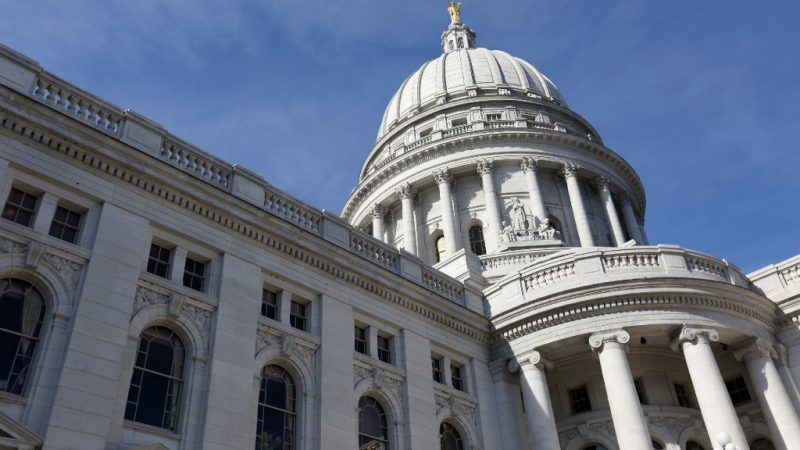One Wisconsin driver sought to brand his vehicle with a personalized “H8WI” license plate last April.
And countless others wanted to flash “4TWENY” — or some variation of the reference to marijuana — across theirs.
Those are just a few of the more than 250 personalized license plate requests Department of Transportation officials pumped the brakes on over the last 15 months, according to a WisPolitics.com review.
The DOT warns drivers on its personalized license plate application it’ll reject or later recall plates that are “misleading or may be offensive to good taste or decency.”
>> WisPolitics is now on the State Affairs network. Get custom keyword notifications, bill tracking and all WisPolitics content. Get the app or access via desktop.
And between Jan. 1, 2018 and March 31, 2019, it shot down 257 potential license plates that sported sex and drug references (like “KOKANE”), profanities, mentions of weapons (including “HAVGUN”) and multiple variations of “MDLFNGR” that were all submitted the same day.
Others requests were more ambiguous. That includes “CDIFF,” submitted last July, which stands for Clostridium difficile and is a bacterium that causes diarrhea and inflammation, according to the Centers for Disease Control and Prevention.
DOT Special Plates Unit Supervisor Shaun Peterson noted in an email the agency catches “almost all message requests that meet our objectionable criteria.”
That work is primarily done by a processor, who reviews each request by reading the potential plate forward, backward, upside down and in reverse, or how it would appear in a mirror, Peterson wrote.
“Our processors use personal experience, as well as a number of online resources such as Google and other websites as aides when reviewing applications,” Peterson wrote.
Those interested in getting personalized plates can list three different options — as well as their meanings — on the DOT application form. Vehicles get seven characters, while motorcycles are allotted five.
During the review, the processor keeps an eye out for clues that could signal the plate is objectionable or misleading, Peterson wrote. That includes violent or sexual messages, the “use of Hate or H8 toward individuals,” racial or ethnic slurs, white supremacist/Nazi references, gang-related terms, illegal drug terms, and names of “subversive organizations,” according to DOT criteria Peterson shared with WisPolitics.com.
Plates that also would identify a vehicle as a law enforcement official would be denied, as well as messages that contain similar letter combinations or are hard to read, such as “B8B8B8B,” per the criteria.
Any plate requests that the processor identifies are then sent to an internal review committee. The body, Peterson wrote, is “made up of a diverse group (of) people of varying ages and backgrounds.”
Once driver get a personalized license plate, they owe a $15 fee each year on top of their annual vehicle registration fee. If there’s a situation where DOT initially misses an indecent license plate and issues it to a driver, state statute says the agency can cancel it and order it be returned.
In that case, the driver would be reimbursed for any additional fees they paid for the plates over the registration year or be given new personalized plates at no cost. If the driver decides not to return the plates, they could be levied a fee of up to $200.


